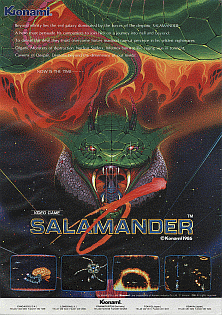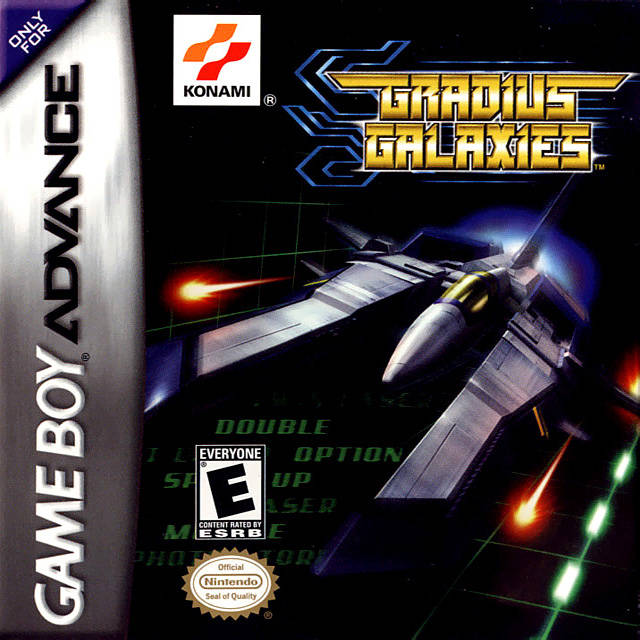

Gradius hardcore gaming 101 trial#
The way the game sets this up is neat: at the end of Act 3, at a point where the stakes are very high, you can decide to be quiet, or speak up and trigger a trial (which you can win or lose). However, one massive benefit of this approach is the fact that it allows the story to branch, in ways Ace Attorney never did. (Let’s also mention here that, while the game tells you you can save any time, this is not true loading always takes you back to the beginning of the day.) Fortunately, should you still have the compulsion to solve it all, the game makes it very easy to go back to a previous point in the game the investigations are separated in “days”, and you can go back to any day you want. This approach can take some fun out of the courtroom scenes, because at any moment you can get stuck because of choices you made 20 minutes ago. If you have an Ace Attorney play style, you will be frustrated at the game for leaving you so little time (or wasting it) and making you enter trials when you’re not ready if you have a more relaxed play style, you might appreciate the fact that, contrary to Ace Attorney, you will never get stuck on a particular deduction or leap of intuition you can’t figure out. The number of locations can be large, some clues or conversations only unlock if you’ve done something else instead, and some locations turn out to be a waste of time this means, in my experience, that it takes luck to get it right on the first try. In subsequent trials, the game’s approach is to limit the time you have to gather evidence: most locations you need to visit will take up one day of your time, and you have, say, 10 days before the trial. This is emphasized in the first trial, where a twist makes you question the victory and your courtroom tactics.

In contrast, Aviary Attorney‘s position is that the story must go on, whether you win or lose the trial victory is not the only way. There is also a big difference in approach: Ace Attorney has a linear story, where each trial must be won or it’s Game Over, and as a consequence the game will not let you start the trial without all the evidence you need to progress. It takes about 6-8 hours to 100% the game, which is slightly less than a standard Ace Attorney episode. This is standard fare for the fans of the Ace Attorney series, although these courtroom sequences are not as good here: they are much shorter, with at most 3 or 4 cross-examinations, fewer twists and turns, and most of the gameplay is spent investigating instead. The goal is ostensibly to get a “not guilty” verdict, and the prosecutor you’re facing is very talented and obnoxious. In these sections, you need to cross-examine the prosecution’s witnesses by reviewing their statements and choosing to dig deeper for some of them of course, you’ll need to present evidence to back up your claims, and show that other theories are possible. Important information and clues are added to your inventory, in preparation for the trial sections. You start with an investigation phase, where you explore locations to find clues (by examining different parts of the background), and gather information by talking to people, including suspects and witnesses. As the defense attorney Jayjay Falcon, you have to deal with four cases, and they progressively are linked together, while the final case provides a resolution to the overarching story. The gameplay is extremely similar to the Ace Attorney series, which is a good thing if you like that series. It is also, well, Ace Attorney with birds, and despite a few problems it is a very good game. This led surprisingly to another monarchy, but with a king, Louis-Philippe, who wanted to appear close to the people under his rule, trade and industry prospered, but rising income inequality and the suppression of political meetings triggered the 1848 revolution, which saw the French do away with monarchy once and for all.Īviary Attorney takes this crucial moment in French history as a backdrop, and uses it very deftly to touch on heavy topics about justice and politics.

In 1814, Napoléon was exiled, and it was back to a monarchy but people enjoyed having a say in society and laws, and a revolution happened in 1830 when the king attempted to restrict civil society too much. This experiment came to a halt in 1799, when Napoléon took power and the French Empire waged war in much of Europe. The one related to Bastille Day was in 1789, and saw monarchy replaced by democracy (and the Guillotine). You may already know about the French Revolution, but you may not have realized there were actually several French revolutions.


 0 kommentar(er)
0 kommentar(er)
